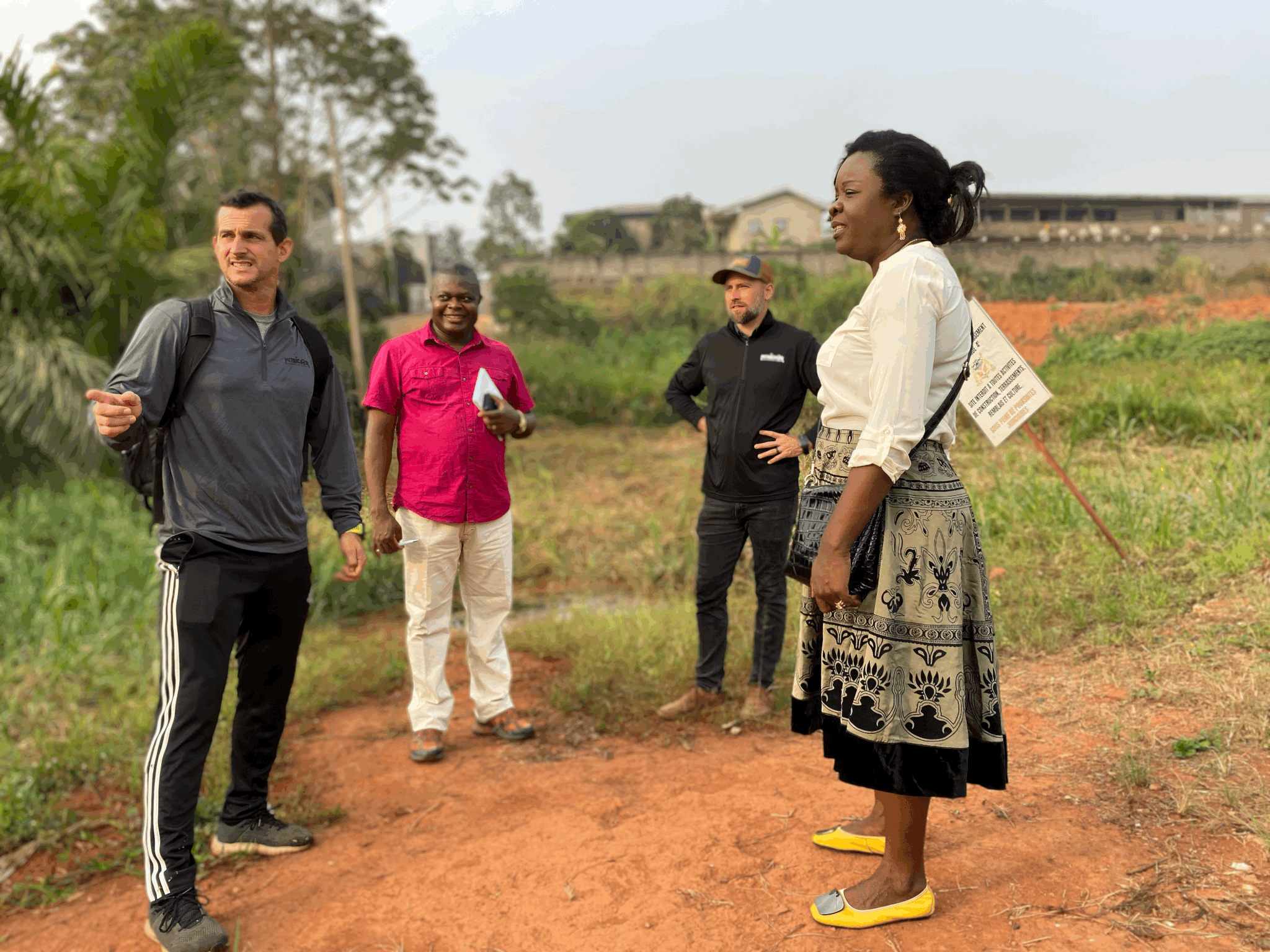Jordan Cone, Country Director and Petrichor Co-Founder, has lived in Cameroon for many years. He works on the ground for Petrichor and over time has learned a lot about the culture of Cameroonian people and their love for football.
1. How has it been working in football development in Cameroon?
It has been an amazing experience. I have learned a lot and have a lot more to learn. The journey has had many challenges but seeing young girls and boys getting to play organized football has been amazing. Being able to help develop these young age groups is incredible.
2. As someone who works on the ground in Cameroon, do you feel that parents are supportive of their girl children playing football?
Getting parents on board is key to the development of girls football here in Cameroon. Helping parents see the value in girls sports, and understanding the benefits is extremely important. Culturally, especially for girls, sports are not a priority. To answer the question, parents struggle to be supportive, however as we show them and teach them the many values sports have to offer they are starting to be more supportive. This is a very important yet difficult part of the process.
3. What is your favorite thing about working with young footballers?
First of all the youth are by far the best part of what we do. My favorite part is seeing their joy as they get to play football. They love playing football. Girls love it and feel valued when they get to play like others and get to have their own league for the first time. I absolutely love being able to invest and pour into the lives of these young athletes. Seeing their passion and desire to play is amazing. I think another part that I absolutely love is sharing my own values and beliefs with the youth I get to invest in.
4. How do you think Petrichor is changing the lives of children in Cameroon?
Petrichor is changing the lives of children in many ways. First of all, it is giving many of them opportunities they have never had before. For the first time, young girls are getting to be part of an organized football league just for them. Value is being put on them. They are able to play in leagues backed by some of the biggest football entities in the world. They are learning all the values that come with team sports - such as respect, teamwork, leadership, honesty, and character. They get to participate in huge tournaments and get to play on some of the best fields. Allowing them to do all this gives them a sense of pride that they can be whatever they want to be. They feel valued. They feel confident. By investing in them they are going to better family members, leaders, workers, and stronger contributing members to their communities. On a side note, Petrichor also helps with education, which we know is a key ingredient to their success.
5. What are some of the challenges that you face with working with young football players?
Honestly we face very little issues with our young footballers. Other than showing up late sometimes and other small issues we almost never have any issues with them. Most of our challenges stem from coaches, parents, and adults that are somehow implicated in the youths lives.
6. Is the Cameroon playing style different from the American playing style?
Cameroonian football seems to be more focused on individual strength (power) and individual skills, for example dribbling. Even coaches focus heavily on these things. The American style is a little more focused on team play and passing. Both have their place, however, if we can put them together I believe we can come up with something amazing - Petrichor style!
7. Having moved from the USA to Cameroon, how was the transition for you?
I grew up in Cameroon, so it wasn't bad. Being an adult here is different than being here as a child, but overall it has been good.
8. Where do you see Petrichor in 5 years?
I think Petrichor could be the premier youth football development association in the country, especially for girls youth football.
Q&A conducted by Nozibusiso Sibiya


